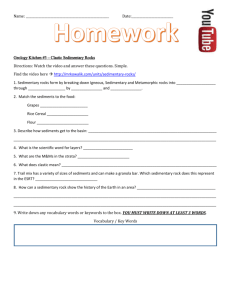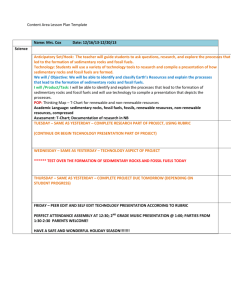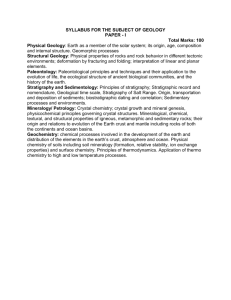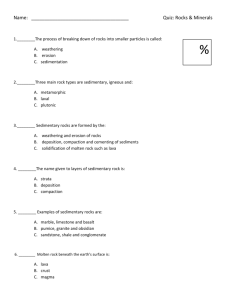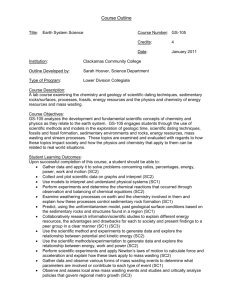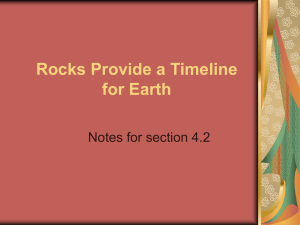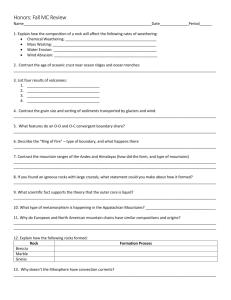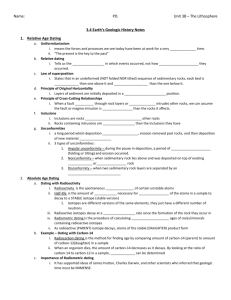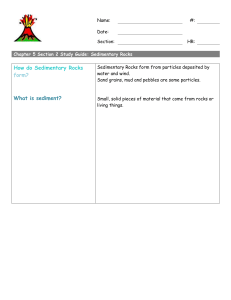GS 105 Outline - Clackamas Community College
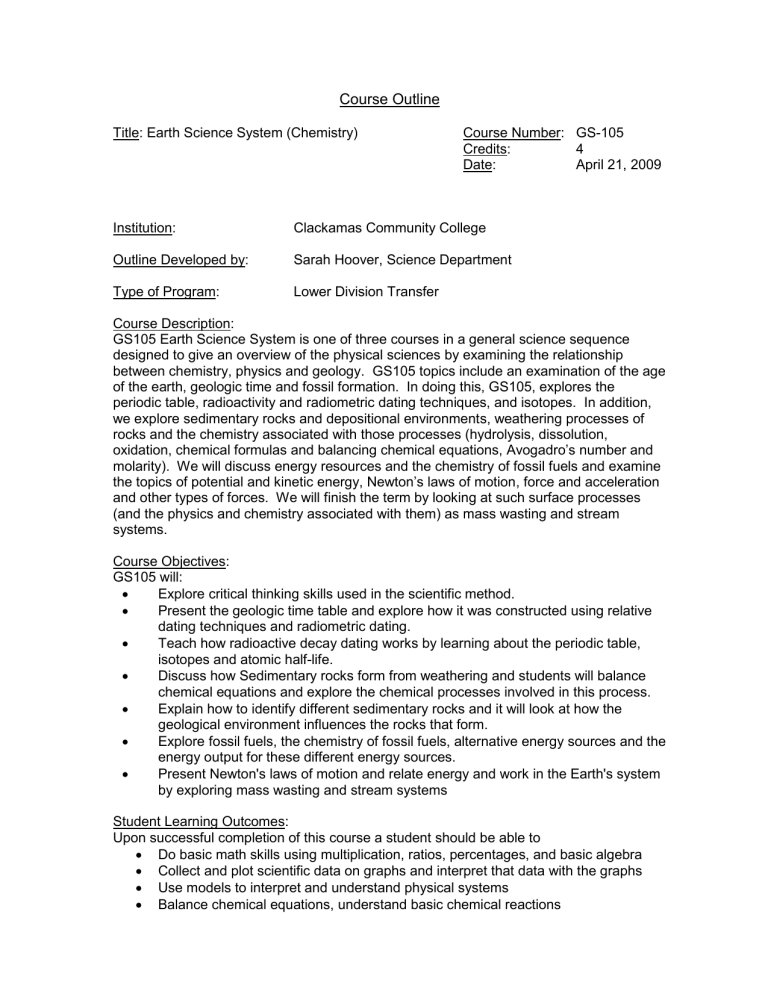
Course Outline
Title: Earth Science System (Chemistry)
Institution:
Course Number: GS-105
Credits:
Date:
Clackamas Community College
4
April 21, 2009
Outline Developed by:
Type of Program:
Sarah Hoover, Science Department
Lower Division Transfer
Course Description:
GS105 Earth Science System is one of three courses in a general science sequence designed to give an overview of the physical sciences by examining the relationship between chemistry, physics and geology. GS105 topics include an examination of the age of the earth, geologic time and fossil formation. In doing this, GS105, explores the periodic table, radioactivity and radiometric dating techniques, and isotopes. In addition, we explore sedimentary rocks and depositional environments, weathering processes of rocks and the chemistry associated with those processes (hydrolysis, dissolution, oxidation, chemical formulas and balancing chemical equations, Avogadro’s number and molarity). We will discuss energy resources and the chemistry of fossil fuels and examine the topics of potential and kinetic energy, Newton’s laws of motion, force and acceleration and other types of forces. We will finish the term by looking at such surface processes
(and the physics and chemistry associated with them) as mass wasting and stream systems.
Course Objectives:
GS105 will:
Explore critical thinking skills used in the scientific method.
Present the geologic time table and explore how it was constructed using relative dating techniques and radiometric dating.
Teach how radioactive decay dating works by learning about the periodic table, isotopes and atomic half-life.
Discuss how Sedimentary rocks form from weathering and students will balance chemical equations and explore the chemical processes involved in this process.
Explain how to identify different sedimentary rocks and it will look at how the geological environment influences the rocks that form.
Explore fossil fuels, the chemistry of fossil fuels, alternative energy sources and the energy output for these different energy sources.
Present Newton's laws of motion and relate energy and work in the Earth's system by exploring mass wasting and stream systems
Student Learning Outcomes:
Upon successful completion of this course a student should be able to
Do basic math skills using multiplication, ratios, percentages, and basic algebra
Collect and plot scientific data on graphs and interpret that data with the graphs
Use models to interpret and understand physical systems
Balance chemical equations, understand basic chemical reactions
Discuss depositional environments of sedimentary rocks and be able to identify different sedimentary rocks
Explain physical and chemical weathering processes that occur on earth
Explain different types of energy resources, and the advantages and drawbacks for each.
Understand how to calculate potential and kinetic energy and how energy and work are related
Understand and use Newton’s laws of motion and be able to calculate force and acceleration.
Explain various forms of mass wasting, what contributes to each type of event and how the NW is affected by this processes
Understand the hydrologic cycle and basic stream systems.
Length of Course: 33 lecture and 33 lab hours
Grading Method: Letter Grade (A-F) or Pass/No Pass
Prerequisites:
Required Text:
None
TBA
Major Topic Outline:
Week Lecture Topics (Tentative)
1 Critical thinking, earth’s age, geologic time and relative dating
2 Absolute dating, radioactivity, periodic table, i sotopes and ½ life
3 Intro to sedimentary rocks and weathering processes, balancing
chemical equations and chemical formulas
4
Continue physical and chemical weathering, Avogadro’s number,
calculating molarity and chemical reactions
5
6
Sedimentary rocks and environments
Energy resources, chemistry of fossil fuels, alternative resource,
kinetic and potential energy
7 Energy in Earth’s systems, Energy and work, Newton’s laws of
motion, Force and acceleration, types of force
8 Mass Wasting
9
10
Linear motion and stream systems
Stream systems and hydrologic cycle
Lab Outline:
Week Topic
1 Relative dating techniques
2 Fossils and fossil formation
3 Radiometric dating
4 Physical and Chemical reactions
5 Sedimentary rocks
6 Energy and transformations
7 Introduction to topographic maps
8 Gravity and landslide physics
9 Stream tables and fluvial landscapes
10 Lab cumulative final
